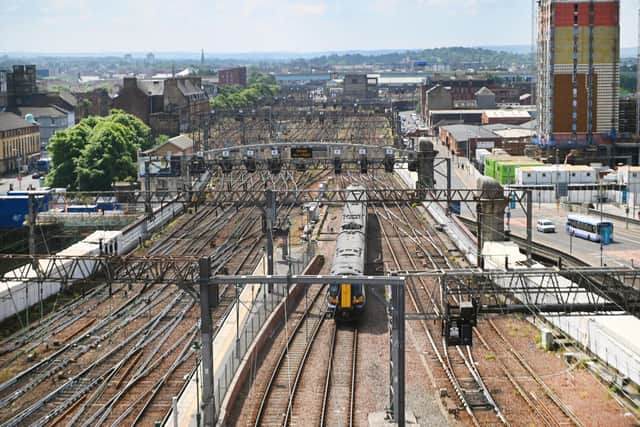Glasgow with three constituencies hardest hit by Universal Credit cut, study shows
In Scotland, Glasgow is home to the three Scottish constituencies which will be hit most heavily by the cut to Universal Credit, a new study by the Joseph Rowntree Foundation has found.
The £20 uplift in weekly payments, which was part of the UK Government’s Covid support, is due to end in October.
Advertisement
Hide AdAdvertisement
Hide AdThe Joseph Rowntree Foundation analysed which UK Parliament constituencies will be most affected by the cut and found that across Scotland, 37 per cent of working-age families with children would lose £1,034 per year.


Alison Thewliss, the SNP for Glasgow Central, said the cuts would “plunge half a million people into poverty” and reiterated calls for Chancellor Rishi Sunak to U-turn on the proposals.
Her constituency will be hardest hit by the cuts, with 63 per cent of families set to be impacted.
She said: “The fact that Tories continue to bury their heads in the sand over the impact these cruel cuts will have on families up and down the country shows their true colours – they really are the nasty party.
“If the Tory government presses ahead with these austerity cuts, it will serve as yet another example of the SNP Government putting money in people's pockets for the Tories to take it away again.”
Scottish Labour’s social security secretary Pam Duncan-Glancy said the figures illustrated the “untold damage” the cut would cause in Glasgow.
“This sets out exactly just how devastating this cut will be,” she said.
"We know that this money is used for food and basics like travel to work or school. The UK Government must think again and keep the uplift.”
Advertisement
Hide AdAdvertisement
Hide AdGlasgow contains the three constituencies in which more than half of all families with children would be affected: Glasgow central (63 per cent) Glasgow South West (55 per cent) and Glasgow North East (54 per cent).
Among the constituencies in which more than four in ten families with children will be affected are Dundee West (49 per cent); Kirkcaldy & Cowdenbeath (44 per cent); Aberdeen North (42 per cent), and North Ayrshire & Arran (43 per cent).
Due to varying levels of deprivation and the number of families in receipt of Universal Credit and working tax credits, some parts of Edinburgh will see more families struggle than others.
Edinburgh East will see 38 per cent hit by the cuts, while Edinburgh South, which has the only Labour MP in Scotland, will see 23 per cent of families hit.
Chris Birt, deputy director for Scotland at the Joseph Rowntree Foundation, said: “Now is the time for MPs and MSPs of all stripes to step up and oppose this cut to their constituents’ incomes.
“It’s not too late for the Prime Minister and Chancellor to change course and reverse this decision.
“While the responsibility for this devastating cut lies with the UK Government, it highlights the urgent need for the full roll-out and doubling of the Scottish Child Payment to support families with children in Scotland.”
Mr Sunak has said the UK Government is “not done helping people” despite the end of the temporary £20 uplift.
A message from the Editor:
Thank you for reading this article. We're more reliant on your support than ever as the shift in consumer habits brought about by coronavirus impacts our advertisers.
If you haven't already, please consider supporting our trusted, fact-checked journalism by taking out a digital subscription.
Comments
Want to join the conversation? Please or to comment on this article.
